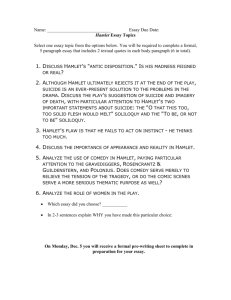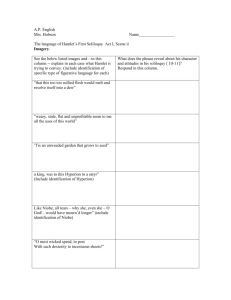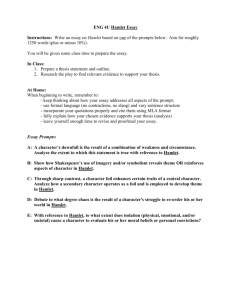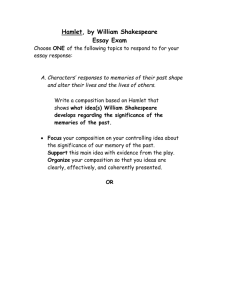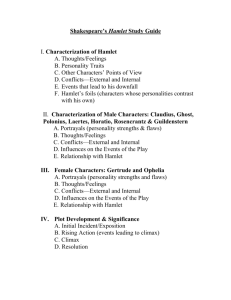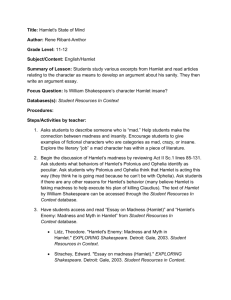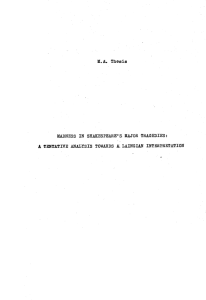CST Agenda: Week of
advertisement
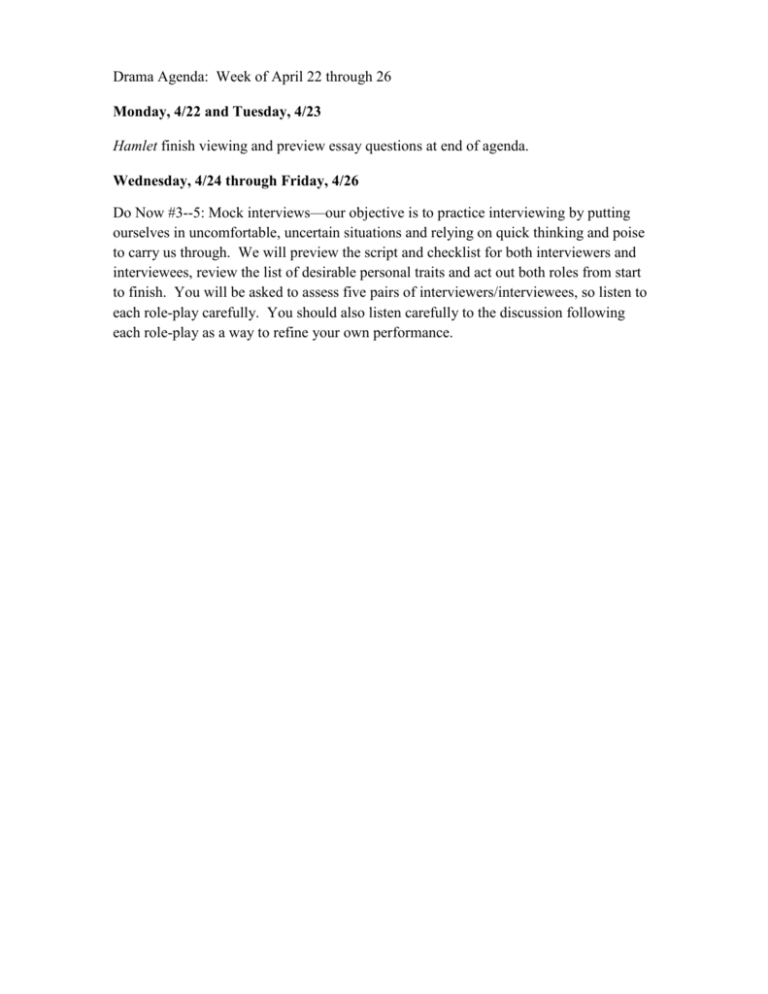
Drama Agenda: Week of April 22 through 26 Monday, 4/22 and Tuesday, 4/23 Hamlet finish viewing and preview essay questions at end of agenda. Wednesday, 4/24 through Friday, 4/26 Do Now #3--5: Mock interviews—our objective is to practice interviewing by putting ourselves in uncomfortable, uncertain situations and relying on quick thinking and poise to carry us through. We will preview the script and checklist for both interviewers and interviewees, review the list of desirable personal traits and act out both roles from start to finish. You will be asked to assess five pairs of interviewers/interviewees, so listen to each role-play carefully. You should also listen carefully to the discussion following each role-play as a way to refine your own performance. Hamlet Essay 200 points Choose one of the three following prompts to write a formal literary analysis essay of 500--675 word paper in which you express your opinion on the question with substantial support in the form of quotations from the play. Your paper must include at least four quotes, one of which should be blocked. 1) Claudius says of Hamlet, “Madness in great ones must not unwatched go.” And Polonius says of Hamlet, “Though this be madness, yet there is method in’t.” Is Hamlet mad? Is he pretending madness as suggested in Act. I? Is there a point when his acting becomes truth? Discuss the role of madness in Hamlet. 2) Shakespeare, it is claimed by many modern critics, was a feminist. James S. Shapiro for example goes so far as to claim that Shakespeare was 'the noblest feminist of them all'; conversely, Shakespeare does go so far as to have Hamlet utter the infamous line “Frailty, thy name is woman.” Based on the two main female characters, Gertrude and Ophelia, what was Shakespeare’s perception of women? 3) Suicide is an important theme in Hamlet. Discuss how the play treats the idea of suicide morally, religiously, and aesthetically, with particular attention to Hamlet’s two important statements about suicide: the “O, that this too, too solid flesh would melt” soliloquy (I.ii.129–158) and the “To be, or not to be” soliloquy (III.i.56–88). Why does Hamlet believe that, although capable of suicide, most human beings choose to live, despite the cruelty, pain, and injustice of the world? Due dates and points: Rough draft (may only be written in class): Wednesday, 5/1: 25 points Peer Editing & Revision (using rubric): Thursday, 5/2 during class: 25 points Final Draft: Monday, 5/6 at the beginning of class: 150 points _______________________________________ Total Essay points: 200 points



